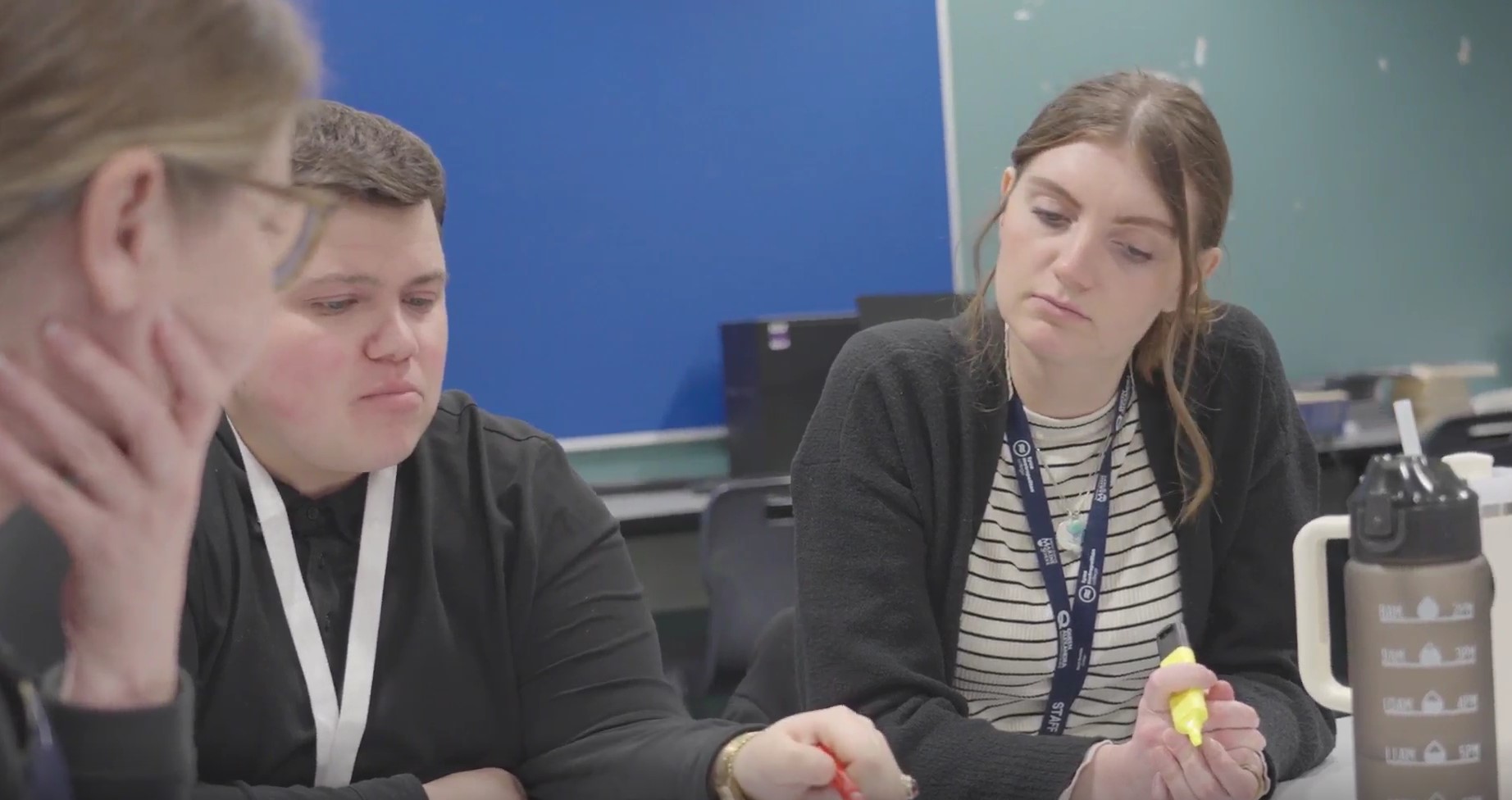Postgraduate Certificate in Education (PGCE) (Lifelong learning) – In-Service
OVERVIEW
This Postgraduate Certificate in Education (PGCE) is designed for professionals currently working in teaching or training roles within the education and training sector (post-14), including further education colleges, independent training providers, and adult or community education settings.
This Level 7 programme is ideal for those who already hold a degree and wish to gain a full teaching qualification while continuing to work in the sector. You’ll develop the skills, knowledge and critical understanding required to contribute effectively to curriculum planning, subject-specialist teaching, and learner progression.
A significant part of your learning will take place in your current teaching role, allowing you to apply theory directly into practice in a supported and structured way. You’ll also benefit from access to academic and professional networks, specialist teaching resources, and experienced practitioners.
The programme is part-time study over two years and is an award of the University of Huddersfield.

CORE MODULES
- Research Informed Teaching, Learning and Assessment – this module aims to develop your understanding of how people learn in the Lifelong Learning Sector and of the role of assessment in enabling learning and achievement. It introduces theories and principles of learning and assessment and develops your ability to apply research evidence in designing effective learning and assessment strategies and materials. It seeks to develop positive approaches to the management of group and individual behaviours and promotes an inclusive approach to teaching, learning and assessment. It introduces the role of key transferable skills and the ways in which people learn English, Maths and digital skills. The module is assessed by means of a practical micro-teaching assignment and the design of an intervention, strategy, activity or resource, underpinned by an understanding of key principles of teaching, learning and assessment.
- Becoming a Subject Specialist Teacher – this module reviews your practice as a trainee teacher. It explores your teaching values, knowledge of your subject specialism, and your knowledge and understanding of how you’re learning to teach. You’ll have the opportunity to learn how to identify and respond to students’ needs, and how to use suitable teaching, learning and assessment strategies to develop inclusive teaching and learning environments. You’ll have the chance to evaluate your teaching effectiveness and develop as a reflective practitioner as well as engage in personal and professional development planning, against the appropriate Professional Standards, to recognise and develop relevant subject specialist knowledge, behaviours and skills. This will include further development of English, Maths and digital skills for you and your students.
- Being a Subject Specialist Teacher – this module builds on previous generic and subject specialist development in two ways. Firstly, it contributes to your development of more advanced strategies and methods for promoting learning and, secondly, it involves a focus on specific specialist areas and the critical analysis of subject specialist pedagogy. The module seeks to enhance your ability to reflect critically on, and to evaluate, teaching and learning; by recognising particular curriculum and professional challenges; and by developing your ability to respond to these concerns in sophisticated, innovative and creative ways. Key learning activities of the module are practical teaching experience and the engagement with other specialists through collaborative practice. The module is assessed through a Teaching Portfolio and a Conference Paper dealing with teaching and learning in the specialist subject.
OPTIONAL MODULES:
- Curriculum and Context
- English as an Additional Language (EAL): Curriculum and Context
- SEND: Curriculum and Context
- EDI and Social Justice: Curriculum and Context

- UK first degree (normally 2:2 or above) or equivalent, related to your subject specialism.
- GCSE grade 4 or above (formerly C grade) in English Language and Maths (or Functional Skills level 2 equivalent).
- Relevant experience in the subject or vocational area you intend to teach.
- Confirmation of an Enhanced Disclosure and Barring Service (DBS) check.
- One satisfactory reference.
- Completion of a satisfactory interview.
- Identification of a work-based mentor who can support you in your subject specialism.
Assessments vary and include essays, the creation of resources to support learning, seminars, and presentations.
Your module specification/course handbook will provide full details of the assessment criteria applying to your course. Feedback (usually written) is normally provided on all coursework submissions within three term time weeks – unless the submission was made towards the end of the session in which case feedback would be available on request after the formal publication of results.
Feedback on exam performance/final coursework is available on request after the publication of results.
On average 20%* of the study time on this course is spent with your tutors (either face to face or online) in lectures, seminars, workshops etc. Study and assessments will be based on your choice of modules. Your module specification/course handbook will provide full details of the assessment criteria applying to your course.
This course prepares you for a professional teaching role within the Lifelong Learning sector, such as working as a lecturer in a college of further education. Former trainees have also progressed into a wide range of teaching and training roles within adult education and private training organisations.
Upon successful completion, you will be eligible to undertake professional formation through the Society for Education and Training to gain Qualified Teacher Learning and Skills (QTLS) status.
You may also wish to progress to further postgraduate study or take on curriculum leadership and advanced practitioner roles within the sector.
Q: What’s the difference between the Certificate in Education and the PGCE?
A: The Certificate in Education (Level 5/6) is designed for those who do not yet hold a degree. The PGCE (Level 7) is for those who already hold a degree (usually 2:2 or above) and want to study at postgraduate level.
Q: Do I need to be working in a teaching role already?
A: Yes. These are in-service programmes, so you must be teaching or training in a relevant setting while completing the course.
Q: How many hours of teaching do I need?
A: You’ll need to complete a minimum of 100 hours of teaching practice over the two years.
Q: Do I need to find my own mentor?
A: Yes. You’ll need to identify a subject-specialist mentor in your workplace who can support you during your training.
Q: Can I apply if I teach in a work-based or private training setting?
A: Yes. Applicants from a range of post-14 education and training environments are welcome, including FE, adult learning, and independent providers.
Q: What qualification will I gain?
A: A: You’ll gain the Postgraduate Certificate in Education (PGCE) in Lifelong Learning, awarded by the University of Huddersfield.
Q: Will this course lead to QTLS status?
A: Yes. On completion, you can apply for Qualified Teacher Learning and Skills (QTLS) status via the Society for Education and Training (SET).
Apply Now
Additional Links
Looking for something else?
Here are some links you might find useful.
And don’t forget, we’re always happy to help, so feel free to get in touch.

